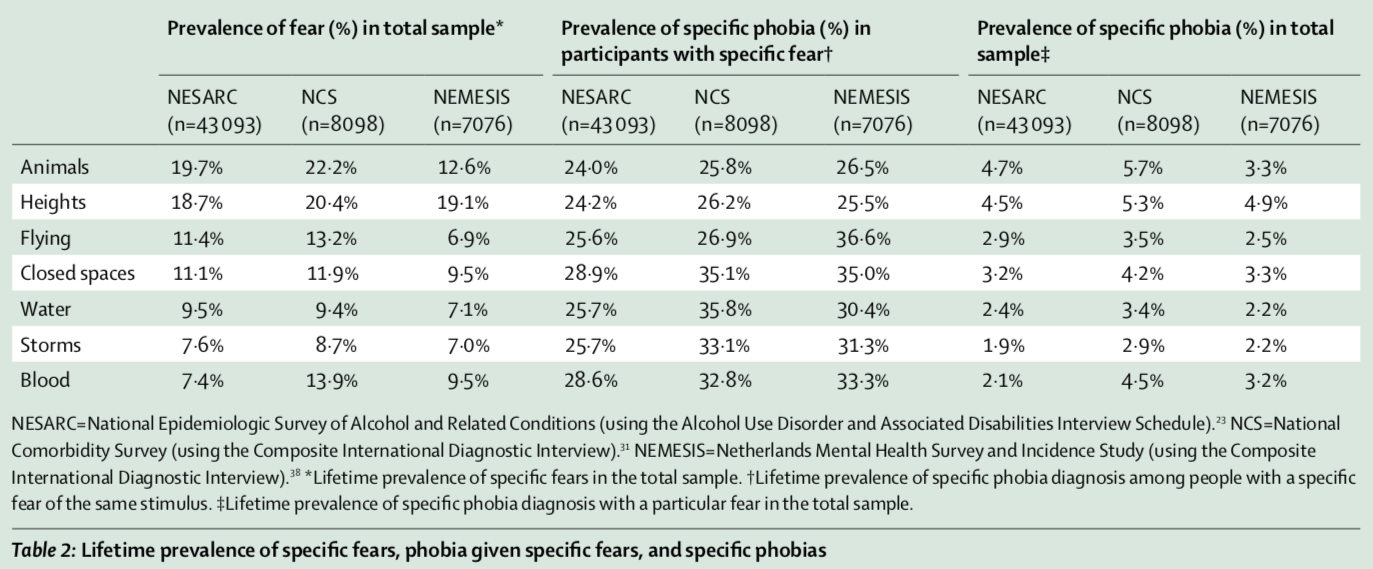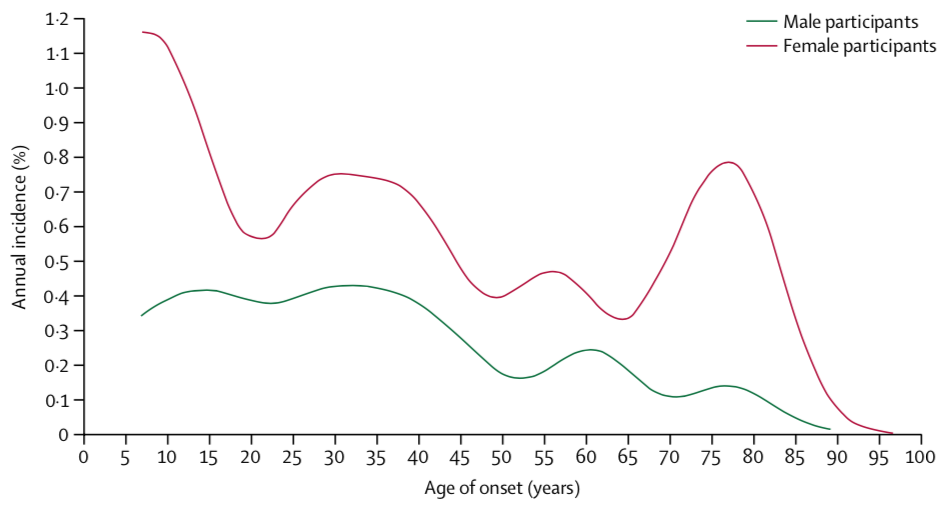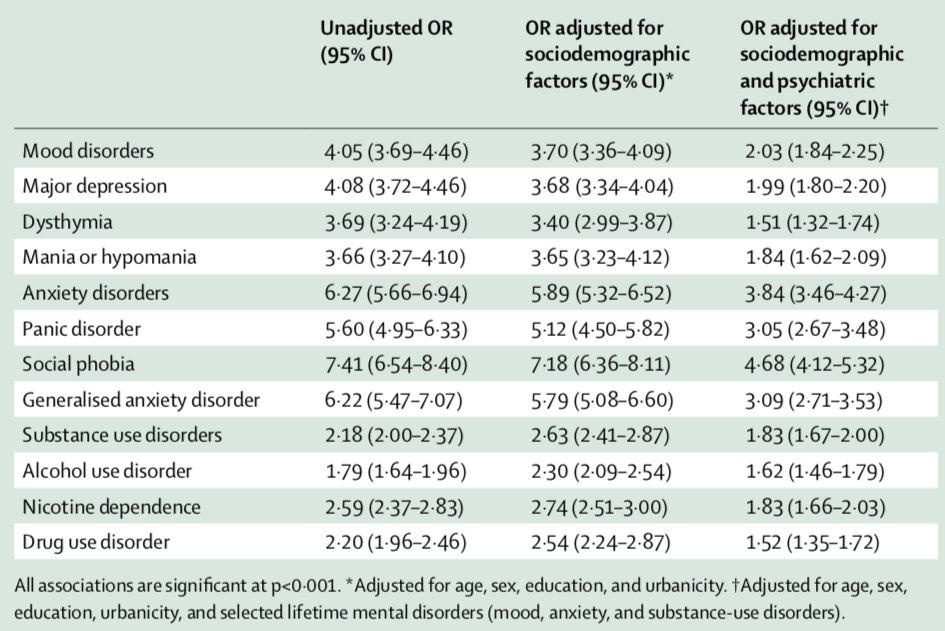Are you afraid of spiders? You aren't alone. (Well, except when it's just you and the spider.)
Across the world, somewhere between 3% and 15% of the population is afraid of something. That's the headline finding in a new review published in The Lancet Psychiatry. But they found so much more.
The authors, led by Dr. William Eaton of Johns Hopkins University, reviewed the existing literature on phobias to gain a better understanding of the phenomenon.
But first, it should be noted that our society casually and often improperly deploys the word phobia, usually in highly emotional and politically charged situations. The terms homophobia and xenophobia come to mind. However, phobias have nothing to do with personal or political beliefs. Instead, as the authors write, a phobia "requires unreasonable fear associated with a specific object or situation, avoidance of the object or situation, persistence of the fear over time, and clinically significant distress or impairment associated with the fear, or avoidance."
The authors focused on specific phobias, which involves the fear of specific things or situations (as opposed to a generalized anxiety). The pertinent data from three of the major studies included in their review are summarized in the following table:

As shown, the most common phobias involve animals, heights, flying, closed spaces, water, storms, and blood. However, note that the prevalence of fear (left column) is much higher than the prevalence of phobia (right column). The difference largely comes down to the absence of some sort of impairment. A person is not diagnosed with arachnophobia simply because she fears spiders; an arachnophobe has to actively avoid them or display a behavioral pathology. Being afraid to walk around in your own house because of spiders might be symptomatic of arachnophobia.
Who Suffers from Phobias?
At all ages, women are more likely to experience a new phobia than men. And phobias don't necessarily just develop in childhood; a person can develop a new phobia at any point in their life. (See figure.)

Furthermore, instead of just being a cute quirk, phobias appear to be linked to other mental health problems. Indeed, the authors write that phobias are "strongly predictive of onset of other anxiety, mood, and substance-use disorders." (See table.)

As shown, phobias are associated with various mental health issues. The strongest associations were with anxiety disorders, panic disorders, and social phobia. This does not mean that phobias cause these other problems (or vice versa), but simply that if a person has a phobia, he or she is likelier to experience other mental health issues, as well.
This raises the possibility that treating a person suffering from a phobia could help prevent the person from developing a more serious mental health condition. But more research is necessary to confirm that hypothesis.
Source: "Specific phobias." William W Eaton, O Joseph Bienvenu, Beyon Miloyan. Lancet Psychiatry 5: 678-86. Published: August 2018. DOI: 10.1016/S2215-0366(18)30169-X

